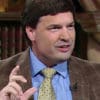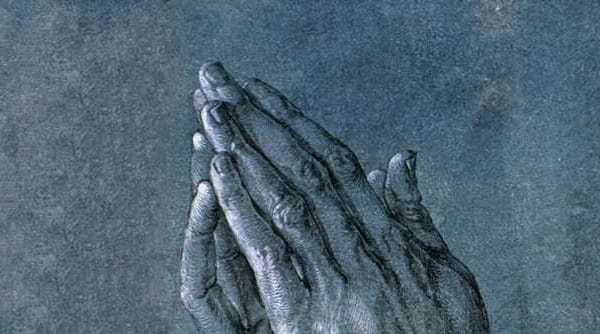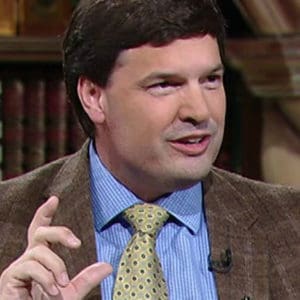Temptation to Power and the Prayer of Humble Obedience
The merely material, psychological and political make lifeless absolutes when it comes to the history of prayer. The ancient prophets of Israel were subversive when they spoke against the worship of bread, sex, and kings. Against these ever present religious propensities, the Church proposes joining the living prayer of the Risen Lord at work in the world.
 This denotes a real struggle in our personal lives and in our culture for the truth about Christian prayer. A couple years ago, Ross Douthat critiqued popular trends in American piety when he penned Bad Religion: How We Became a Nation of Heretics. His investigation found false doctrines rooted in material comfort, psychological intoxication and political power. He rightly perceives the social dangers of such doctrines when they become mainstream. To be leaven in society (and in our families) Christian prayer does not rest and cannot rest with any earthly satisfaction, or in the comfort of spiritual consciousness, or in the security of political control. The mystery of prayer only unfolds in the freedom of Christ’s poverty, chastity and obedience.
This denotes a real struggle in our personal lives and in our culture for the truth about Christian prayer. A couple years ago, Ross Douthat critiqued popular trends in American piety when he penned Bad Religion: How We Became a Nation of Heretics. His investigation found false doctrines rooted in material comfort, psychological intoxication and political power. He rightly perceives the social dangers of such doctrines when they become mainstream. To be leaven in society (and in our families) Christian prayer does not rest and cannot rest with any earthly satisfaction, or in the comfort of spiritual consciousness, or in the security of political control. The mystery of prayer only unfolds in the freedom of Christ’s poverty, chastity and obedience.
When measured before the the living prayer of the Word of the Father, one can discern in one’s own prayer the same poisoned desire to see measurable results that motivated the prosperity myths of the ancient world. All earthly dreams, like even the American dream, fall short of the Father’s plan. This is why the Lord Jesus advised us to seek the blessedness of being poor in spirit. To those who desired an abundant life, he counseled poverty, “Go, sell all you have…” Such is the power of God – not limited by the greatest but allowing itself to be encompassed by the least: “He who is mighty has done great things.”
Only the lowly, the vulnerable, the poor and the dispossessed can begin to contemplate the One who freely emptied himself to be born in a cold cave in an obscure village to an unknown handmaid. To pray we must identify ourselves with such as these, just as He did, by love and for  love. It was because of this kind of love that Christ did not use prayer to turn stones into bread for Himself but did not fear to multiply the bread he broke for the multitudes.
love. It was because of this kind of love that Christ did not use prayer to turn stones into bread for Himself but did not fear to multiply the bread he broke for the multitudes.
There is a temptation to settle for merely a new consciousness in prayer order to feel better about oneself. Though utilizing all kinds of techniques and exercises instead of whips and dancing, are we not merely trying to surmount the same limits and cross the same boundaries the servants of Baal thought they could achieve by tantric frenzy? In the effort to surmount their own humanity to get to the other side, those prophets thought at the time they could collapse the space between creature and creator to command heaven’s fire just like the self-help gurus of today propose. All attempts to submit what is divine to such solipsism amount to little more than flinging oneself from the heights of pride.
Christ did not fling himself down nihilistic abysses, losing all self-possession in the presumption of angelic assistance. Instead of identifying his whims with the will of heaven (and he alone had the right to), he would not put His heavenly Father to the test. Instead, His love was poured out to the end, even in His last wordless cry, a love that would not forsake His promises to the Father or His promises to those whom He loved. Before the mystery of His total gift of self to us on the Cross, He counselled chastity for the Kingdom, declaring: “Blessed are the pure of heart, they will see God.”
Prayer can be driven by fear or hope for some the political future – the very same hope and fear that caused the ancient kings to sacrifice their sons and offer their daughters in temple prostitution. Sadly, abortion and sex have become a shrill part of the worship of political power today. The same gluttony for prestige and lust for control enchanting the ancients through Baal and Molech also seduces today in more far-reaching albeit cynical ways.
Against this enchantment, Christ denounced bending his knee to any diabolic (and thus, irrational) hope or fear in pursuit of his kingdom. Instead, he chose to serve the Lord God alone. It was a matter of obedience. He declared that those who were persecuted with Him would know a blessedness nothing in this world could take away. The very powers of heaven might be shaken, but they will see “the Son of Man” coming in power and glory.
 Poverty, chastity, and obedience – this is the threefold pathway to great prayer. Such prayer accesses heaven whether we are married or celibate, successful in this life or failures, influential or unknown. Such prayer renounces comfort, intoxication, and power. It looks to what is above with humble expectation. This is because such prayer enters into the logic of Christ’s prayer, the prayer of the One who triumphed over sin and death – it knows this prayer’s inner harmony even as it is hidden from this world. Immeasurable, unimaginable, inexhaustible – this kind of prayer astonishes, fills with wonder and leads to adoration — the total surrender of oneself to the Lord in love. In this kind of prayer, humble humanity is kissed by divine humility.
Poverty, chastity, and obedience – this is the threefold pathway to great prayer. Such prayer accesses heaven whether we are married or celibate, successful in this life or failures, influential or unknown. Such prayer renounces comfort, intoxication, and power. It looks to what is above with humble expectation. This is because such prayer enters into the logic of Christ’s prayer, the prayer of the One who triumphed over sin and death – it knows this prayer’s inner harmony even as it is hidden from this world. Immeasurable, unimaginable, inexhaustible – this kind of prayer astonishes, fills with wonder and leads to adoration — the total surrender of oneself to the Lord in love. In this kind of prayer, humble humanity is kissed by divine humility.
+
Art: The Temptation of Christ, Simon Bening, 16th C, PD-US author’s life plus 70 years or less; “Praying Hands” (”Betende Hände”), Albrecht Dürer, PD-US author’s life plus 100 years or less; Allegory of Humility in Karlskirche (St. Charles’ Church, Vienna, Austria), Johann Michael Rottmayr, photograph by Wolfgang Sauber, CCA-SA 3.0 Unported; all from Wikimedia Commons.
Editor’s Note: For more of Anthony’s insights on prayer, don’t miss his book, Hidden Mountain Secret Garden, an experience like no other. Anthony has an unusually profound understanding of mystical theology and lives a life of deep prayer. Among his many accomplishments and responsibilities, Dr. Lilles now teaches theology for the Avila Institute.




